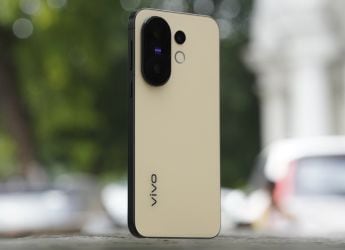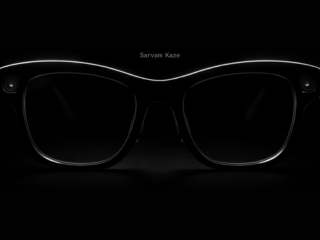- Home
- Mobiles
- Mobiles Features
- Apple's New A11 Bionic SoC Featuring Neural Engine: Everything You Need to Know
Apple's New A11 Bionic SoC Featuring Neural Engine: Everything You Need to Know

The newly launched iPhone 8, iPhone 8 Plus, and the iPhone X are noticeably different-looking from the previous generation iPhone models. But it is what driving these new iPhone models that is arguably far more exciting and displays company's major ambitions. Apple says the new iPhone models - all three of them - are powered by the Apple A11 Bionic SoC, its custom chip that features a 'neural engine' to handle machine learning or artificial intelligence based tasks, powering Face ID, Animoji, and other features.
Smartphone companies, including Apple and Huawei, are increasingly placing bets on artificial intelligence for a range of new capabilities that were only a few years ago unimaginable. Huawei, for instance, recently announced Kirin 970, its own custom built chipset featuring "neural processing unit" that it claims will help accelerate image and voice recognition.
Apple took its time to reveal what it has in store, but if the demonstration onstage at the event this week is any indication, the company's ambitions with AI are far bigger than any of its rivals'. Here's everything it said about the A11 Bionic at the event.
Most powerful and smartest chip ever in a smartphone
Apple is not mincing word when it describes how powerful it thinks the A11 Bionic chip is. It's a six-core CPU design with two performance cores that are 25 percent faster than the company's A10 Fusion, which it has previously used in older iPhone generations.
![]()
The other four cores are for efficiency that are 70 percent faster than the A10 Fusion, it said. Coupled with these cores is a new, second generation performance controller that makes use of all the six cores simultaneously, delivering up to 70 percent greater performance for multi-threaded workloads.
The efficiency is also improving the battery life, Apple claims. Compared to the iPhone 7, the A11 Bionic-powered iPhone models will last two hours longer. The A11 Bionic chipset is also integrated with an Apple-designed GPU with a three-core design that delivers up to 30 percent faster graphics performance than the previous generation.
Use in facial technology
The dual-core neural engine chip onboard the A11 Bionic powers can accurately map and recognise a face, Phil Schiller, Apple's SVP of Worldwide Marketing said onstage at the iPhone 8 launch. The A11 Bionic chip works in tandem with Face ID, the facial recognition feature Apple announced, to use the depth technologies to allow users to unlock the iPhone X as well as make use of it in Apple Pay services by just staring at the phone.
Taking better images
While the cameras on the iPhone X take pictures, A11 Bionic CPU works to recognise the surrounding and background in the image. Coupled with the GPU, the new iPhone is able to perform the image signal processing in real-time, the company said.
![]()
In Animoji
At the event, Apple also announced Animoji, which makes use of the TrueDepth camera on the front-facing side to track over 50 muscle movements on the human face to mimic those expressions in emoticons. The company said these processing and capabilities are possible because of the A11 Bionic SoC and its neural engine chip.
All processing on the device
The neural engine on the A11 Bionic chip can handle 600 billion operations per second. This is essential for Apple, which is reluctant to use any cloud processing power. The company doesn't want any sort of information to be sent to its servers for processing. Everything the A11 Bionic chip does happens locally on the device, which would be music to the ears of customers who care about privacy.
Get your daily dose of tech news, reviews, and insights, in under 80 characters on Gadgets 360 Turbo. Connect with fellow tech lovers on our Forum. Follow us on X, Facebook, WhatsApp, Threads and Google News for instant updates. Catch all the action on our YouTube channel.
Related Stories
- Samsung Galaxy Unpacked 2026
- iPhone 17 Pro Max
- ChatGPT
- iOS 26
- Laptop Under 50000
- Smartwatch Under 10000
- Apple Vision Pro
- Oneplus 12
- OnePlus Nord CE 3 Lite 5G
- iPhone 13
- Xiaomi 14 Pro
- Oppo Find N3
- Tecno Spark Go (2023)
- Realme V30
- Best Phones Under 25000
- Samsung Galaxy S24 Series
- Cryptocurrency
- iQoo 12
- Samsung Galaxy S24 Ultra
- Giottus
- Samsung Galaxy Z Flip 5
- Apple 'Scary Fast'
- Housefull 5
- GoPro Hero 12 Black Review
- Invincible Season 2
- JioGlass
- HD Ready TV
- Latest Mobile Phones
- Compare Phones
- Lava Bold N2
- Vivo V60 Lite 4G
- Tecno Pova Curve 2 5G
- Lava Yuva Star 3
- Honor X6d
- OPPO K14x 5G
- Samsung Galaxy F70e 5G
- iQOO 15 Ultra
- Asus Vivobook 16 (M1605NAQ)
- Asus Vivobook 15 (2026)
- Brave Ark 2-in-1
- Black Shark Gaming Tablet
- boAt Chrome Iris
- HMD Watch P1
- Haier H5E Series
- Acerpure Nitro Z Series 100-inch QLED TV
- Asus ROG Ally
- Nintendo Switch Lite
- Haier 1.6 Ton 5 Star Inverter Split AC (HSU19G-MZAID5BN-INV)
- Haier 1.6 Ton 5 Star Inverter Split AC (HSU19G-MZAIM5BN-INV)
-
 Vivo X300 FE Tipped to Launch in Two RAM and Storage Configurations: Expected Features, Colourways and More
Vivo X300 FE Tipped to Launch in Two RAM and Storage Configurations: Expected Features, Colourways and More
-
 AI Impact Summit: Sarvam Kaze Smart Glasses Showcased, Will Launch in India in May
AI Impact Summit: Sarvam Kaze Smart Glasses Showcased, Will Launch in India in May
-
 Vivo V70 FE Design Seen in Leaked Promo Image; Tipster Leaks RAM and Storage Configurations
Vivo V70 FE Design Seen in Leaked Promo Image; Tipster Leaks RAM and Storage Configurations
-
 Sony Reportedly Develops New Tech That Can Trace Original Music in AI Songs
Sony Reportedly Develops New Tech That Can Trace Original Music in AI Songs





![[Partner Content] OPPO Reno15 Series: AI Portrait Camera, Popout and First Compact Reno](https://www.gadgets360.com/static/mobile/images/spacer.png)





